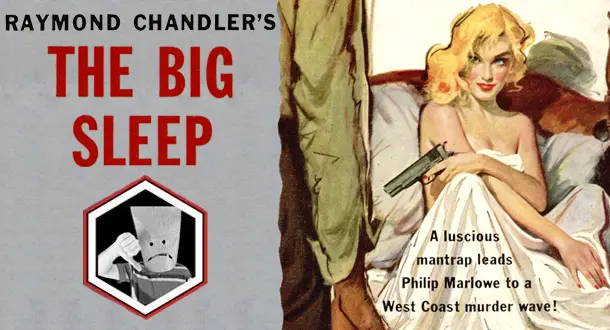Menu
Columns
Showing 3546 Columns
Showing 3546 Columns
August 2nd, 2012

'Your Favorite Book Sucks' is an ongoing column, written by different people, that takes a classic or popular book and argues why it isn't really all that great. Confrontational, to be sure, but it's all in good fun, so please play nice.
Read Column →August 1st, 2012

Every month I'll be toiling in the dank, dark mines of literary obscurity, scouring the catalogues of every major publisher to bring the LitReactor faithful a few choice titles hitting the shelves. The following is a brief look at what's worth checking out in August. Full disclosure: unless otherwise noted, none of the below books have been reviewed by myself or other LitReactor staff. These are just a few recommendations based on publisher's notes and my own opinions. Without further ado:
Read Column →July 31st, 2012

It used to be that if you wanted to record an album or write a book, you had to beg your parents for money or get a job flipping burgers, just to keep the lights on and the booze flowing while you toiled at your art. That paradigm has shifted, thanks to crowdfunding websites like Kickstarter, where you can post a work-in-progress, request funding by enticing people with exclusives and rewards, and ultimately fund your dream without the indignity of filing out an application at the local Starbucks.
Read Column →July 31st, 2012

Flash fiction: A style of fictional literature marked by extreme brevity. How This Works We give you something. It could be a picture or an idea or a sentence. You write a flash fiction piece, using the thing we gave you as inspiration. Put your entry in the comments section. One winner will be picked, and awarded a prize.
Read Column →July 31st, 2012

Imagine watching a great TV show, and at the most dramatic, perfect moment of the lead character’s heart-wrenching soliloquy, the boom mic dangles, just barely, into the corner of the frame. No matter how good the show has been up to this point, the spell is broken—you’re painfully wrenched from the tale, immediately aware that you are not IN a story, only WATCHING a story. Bad formatting can do exactly this to your fiction.
Read Column →July 30th, 2012

They say don't judge a book by its cover, but these 12 designs make it awfully hard not to. From the hysterical to the offensive to the downright frightening, they are sure to elicit a gut reaction before your brain has even had time to process what it's seen. You'll laugh, you'll cry... you'll be aroused but ashamed to admit it. Which is why we discuss these things hidden behind our computers in the public privacy of the internet. But be warned, some of these are NSFW, so you might want to look over your shoulder if you're on the job.
Read Column →July 27th, 2012

Photo from ScreenCrush Welcome back to Scandalous!, in which I dauntlessly voice an unpopular opinion about a popular book.
Read Column →July 26th, 2012

Do you ever get tired of searching the Internet? I know I do, and I practically do it for a living. I’m not talking about leapfrogging – that exciting thing that happens when you’re supposed to be working and you click on a link someone posted on Facebook and an hour later you’re looking at images of modern interior design in Australian homes. No. I’m referring to the infuriating task of finding something on purpose.
Read Column →July 26th, 2012

Since J. R. R. Tolkien, other races have become a staple of the fantasy genre. Tolkien gave us our modern fantasy version of Elves, Dwarves, Hobbits, Orcs, Ents, and so on. Tolkien was careful not to make his races too monolithic - there is variation within each race - but certain traits generally remained the same. Elves are depicted as nobler, fairer, and wiser than men, an example that humans and others should aspire to. Dwarves are often seen as short-tempered and quarrelsome, having an uncomfortable tendency toward greed.
Read Column →July 25th, 2012

Philip K. Dick occupies a unique position in the canon of 20th century Science Fiction. Despite working for his entire life in a field that is often dismissed as mere genre, Dick enjoyed numerous accolades from the mainstream while alive. And in the years since his death in 1982, Dick's work has become even better known and respected. Primarily, this is because of the many films that have been adapted from his work. But fans of Science Fiction who have neglected Dick's novels and shorts stories are truly missing out on one of last century's finest writers.
Read Column →Submitting your manuscript?
Professional editors help your manuscript stand out for the right reasons.
